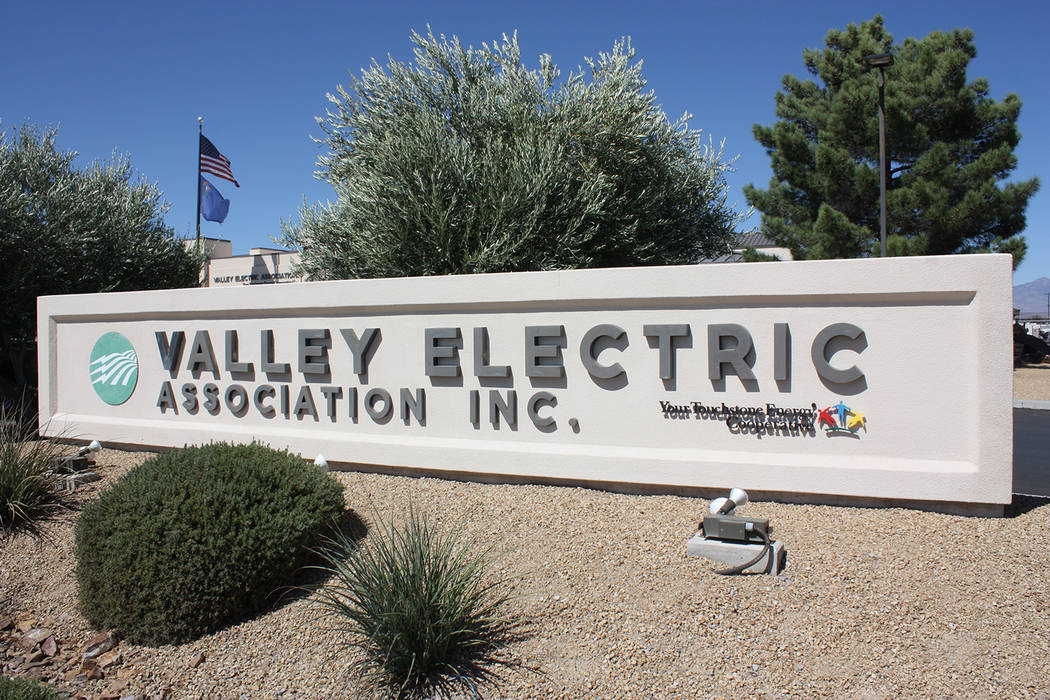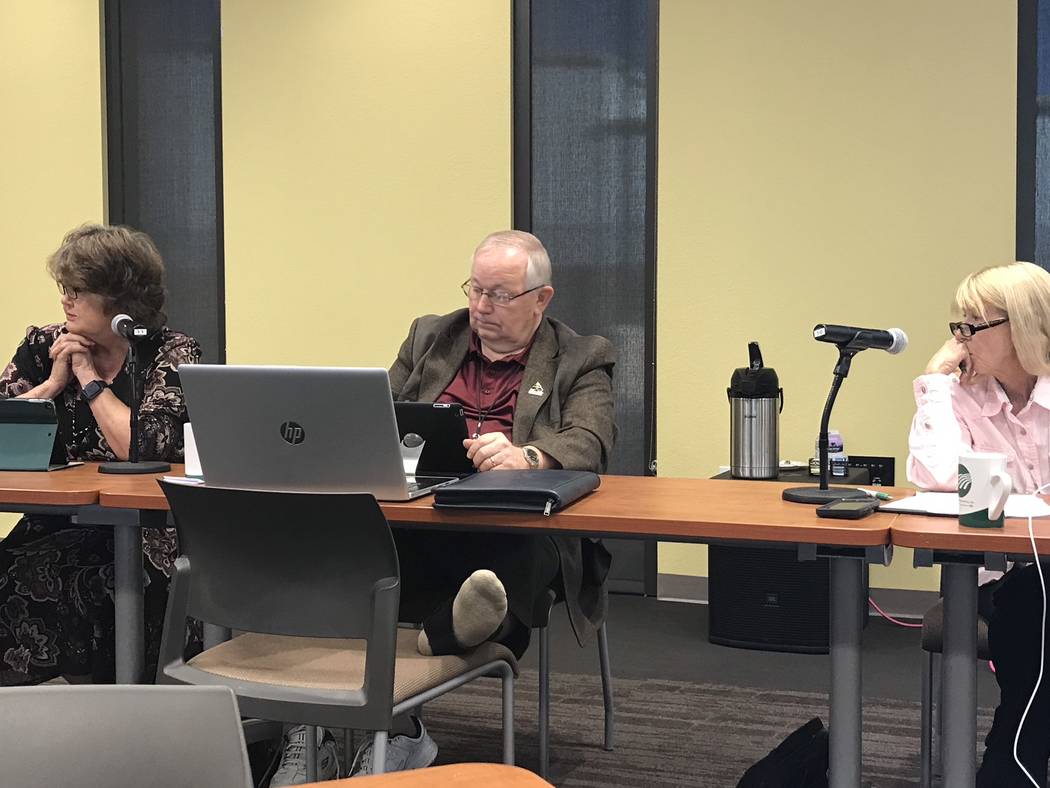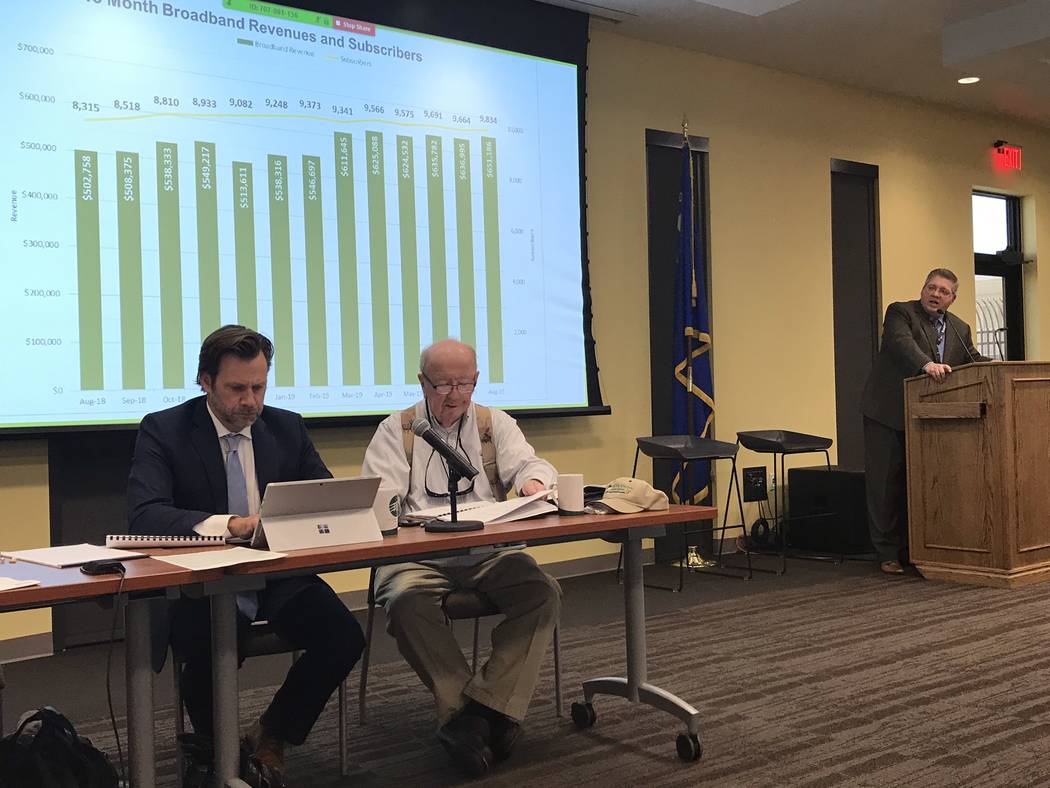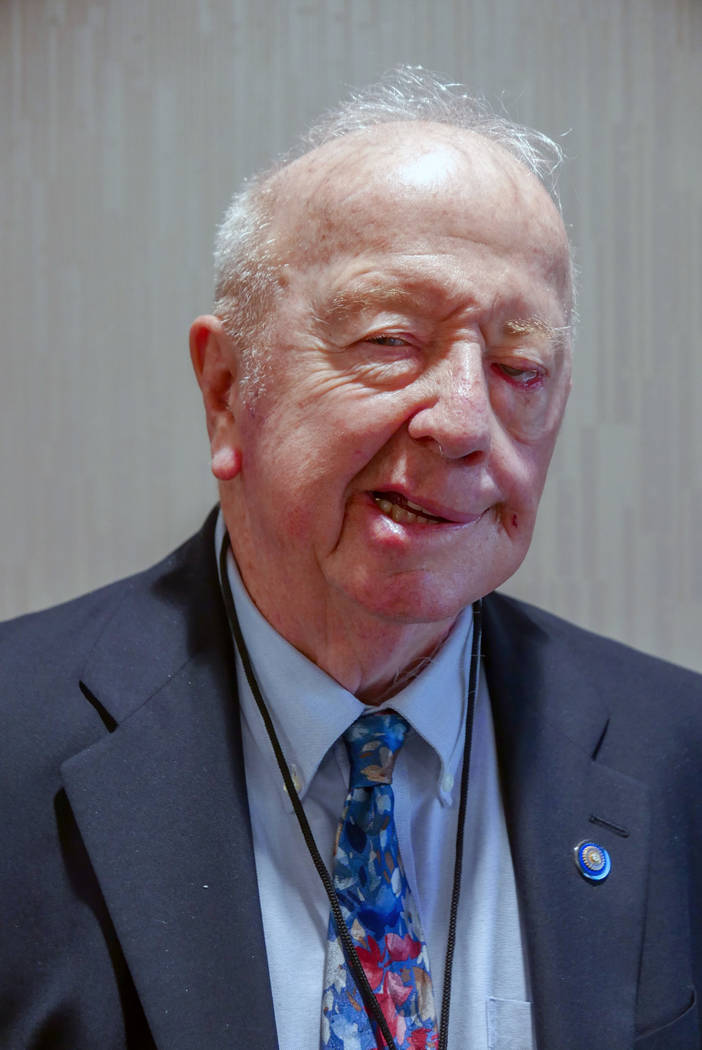PVT takes closer look: New interim Valley CEO to serve in dual role
Outgoing Valley Electric Association Inc. Interim CEO Dick Peck will depart from his role at the end of October, and a current board member will take his place as interim CEO until the search for a permanent replacement is completed. The search and hiring a permanent replacement, according to statements from the co-op, should be completed by Thanksgiving.
Peck will depart on Oct. 31, the end of his contract period with the co-op, and he will be succeeded by Terrie D’Antonio, District 5 (Sandy Valley) director. When Peck departs, D’Antonio will operate in both the interim CEO position and as a board member for the co-op, where she will not draw a salary for her time as interim CEO.
“We’ll know who the new CEO is the week before Thanksgiving, so then it’s just a matter of when he or she can get here,” D’Antonio said.
Bringing a board member on as an interim CEO is not an uncommon practice.
A “CEO can resign without clear succession plan (e.g., health issues, better job opportunities etc.),” said Wonyong Oh, professor of strategy at the University of Nevada, Las Vegas’ Lee Business School. “In this case, companies will appoint “interim CEO” or “acting CEO” until a new CEO search is completed (i.e., during transition period). It is common that senior management such as COO (Chief operating officer) or board chairperson take this interim CEO role.”
One of Oh’s research areas is corporate governance, such as board of directors, CEOs and ownership structure.
Oh’s responses come from a perspective of a for-profit corporation, he said.
According to Oh, Valley’s move to have a board member also fill the role of interim CEO isn’t “unethical” or “questionable.”
“I do not see any unethical or questionable practice here from the corporate governance perspective,” Oh said. “It looks like a typical ‘interim CEO’ case.”
Oh was asked if it’s acceptable for a board member to serve as CEO.
“Not only just acceptable, but also very common,” Oh said. “If you look at any Fortune 500 companies, in almost all companies, the CEO also serves as a board member.”
Oh used Apple as an example, where CEO Tim Cook also serves as a director-member, he said.
“The key in corporate governance practice is preventing conflict of interest; CEOs may seek self-interest rather than the shareholder’s wealth (in nonprofit organization (NPOs), it could be the goal of the NPOs (nonprofit organizations), what’s best for the community, etc.),” Oh said. “For example, some CEOs are interested in getting higher salary even when stock value is evaporated. It is important that board members should be cautious about this potential issue and CEOs should keep the CEO search process fair and transparent.”
Kerry Fields, professor at the University of Southern California’s Marshall School of Business, who teaches business law and ethics, sees the Valley Electric situation differently.
“I just can’t conceive that in most cases that relationship, but for an emergency … say we had an immediate resignation because of health reasons, that someone had to step in and execute the signing of contracts and things like that,” Fields said. “We would all agree that someone should be appointed for a month or two until they can hire or retain either a consultant as a manager or an employee as a manager to fulfill these duties.”
On an indefinite basis, Fields said that shouldn’t happen.
“In this situation, a cooperative has the same standards of observing fiduciary duty as corporations do, it’s just a different business structure,” Fields said. “So the board of directors owe the members who benefit from the co-op a fiduciary duty, and that fiduciary duty has many forms. One of them is a loyalty and care … that is they should avoid conflicts of interest, and second, they should act in a reasonable manner that promotes the lawful interests of the members.”
Fields continued: “And when we have a director-manager, it’s difficult, if not impossible, to avoid the appearance of a conflict of interest. It’s imprudent, and issues beyond just … compensation are going to arise and be looked at in a hindsight way that suggest that the manager should not have placed themselves in both roles. The directors are supposed to set policy and manage the CEO/manager. That’s impossible when one is so closely aligned with the other board members. There’s no impartiality. There’s inherently a lack of independent judgment to critique the actions and omissions of the CEO/manager.”
Fields said, “I don’t see this as advisable at all. I think it’s inadvisable and is asking for a larger problem to develop later on because of the lack of independence of all the board members.”
CEO search
Valley Electric’s board has contracted with the National Rural Electric Cooperative Association to facilitate its new CEO search process, Valley’s board announced in mid-August.
Peck, who started in his interim position in March 2019, is the fifth leader to be brought on at Valley Electric in less than a year at that time on either a permanent, interim, or acting basis. One candidate, Byron C. Nolde, was designated to take the role but changed his mind just days after being named.
Peck replaced Angela Evans after she was arrested on suspicion of embezzlement at the end of February. Evans, no longer with the co-op, was initially put on paid administrative leave in February, pending an internal investigation, with Valley’s board announcing her departure in early July.
Evans has been the only person arrested since the Nye County Sheriff’s Office launched an investigation into the co-op in February over allegations that “hush money” was paid to current and former Valley employees to keep quiet about former CEO Thomas Husted’s alleged sexual harassment of a female employee. Husted has never been charged with a crime or arrested over the ongoing investigation by the Nye County Sheriff’s Office.
D’Antonio will be the sixth leader of the co-op to be named since May 2018.
D’Antonio carries several years of experience in the nonprofit world; she was the CEO of nonprofit HELP of Southern Nevada for 14 years and has led other nonprofits in the Southern Nevada area. She has been in the Southern Nevada region for 41 years.
Contact reporter Jeffrey Meehan at jmeehan@pvtimes.com on Twitter @MeehanLv
Update from VEA
Due to technical issues, some payments are currently not posting to Valley Electric accounts, the VEA said in a Facebook post on Thursday. "As a result, the co-op will not disconnect any overdrawn prepaid accounts until after the issues are resolved. VEA regrets the inconvenience," the VEA's statement said. The issue was expected to be resolved early Thursday afternoon, the VEA reported in an update.
About the VEA
Valley Electric Association, Inc. (VEA) is a member-owned nonprofit electric utility headquartered in Pahrump.
While VEA started as a small rural electric utility in 1965, the company now provides electric service to more than 45,000 people (18,000 member-consumers) within a vast 6,800-square-mile service area located primarily along the California-Nevada line, with the majority in Nevada.
Valley Communications Association (VCA), a wholly-owned subsidiary of VEA, began providing high-speed communications to our member-owners in the spring of 2016.
VEA's service area starts in Sandy Valley, southwest of Las Vegas, and extends north for more than 250 miles to Fish Lake Valley. For more information about VEA, visit www.vea.coop
Source: Valley Electric Association




















